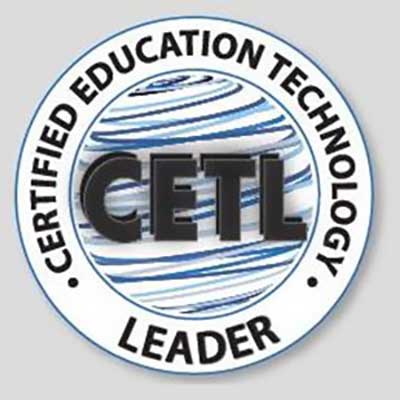|
Core Courses
-
EDUC 8100 - Advanced Study of Learning
The course deepens experienced educators’ knowledge of research-based best practices in diverse classrooms. This is an advanced course with in-depth study of classic and current research on learning theories and related topics in educational psychology as they relate to teaching and learning in schools. Focus is on those theories and research which have transformed and are reforming educational practice. |
-
EDRS 8000 - Applied Quantitative & Qualitative Research
Candidates will develop a functional understanding of quantitative and qualitative
research as applied to educational arena. Emphasis is placed on candidates acquisition
of analytical and interpretive skills. |
Instructional Technology (ITEC) - Advanced Track Courses
-
ITEC 8510 Teaching, Learning & Technology
This course introduces candidates to technology supported instructional models and
strategies to maximize student learning. Candidates will develop digital-age learning
experiences for students that incorporate research-based best practices, assessment,
differentiation, diversity, and cultural understanding while advancing student technology
literacy. |
-
ITEC 8520 Supporting Technology Infrastructure in Schools & Districts
An important part of becoming a school district technology leader is a solid understanding of the academic and administrative technology that is so common in today’s educational setting. Further, appropriate skills related to project management, negotiation, and day-to-day management of staff and operations are critical. This course focuses on excellence in professional practice, systemic improvement, knowledge of certain technologies, and professional growth. Further, students will read, write, and collaborate about technology planning, implementation, operation, security, and disaster recovery specific to a school or district context. We’ll make special effort to examine communications technologies that are part of a modern school and school district. |
-
ITEC 8530 Technology Leadership & Strategic Planning
This course prepares candidates to lead the development and implementation of a shared
vision and a strategic plan for comprehensive integration of technology into instruction
and business practices in their school district, state, region, or nation. |
-
ITEC 8540 Business Management & Staffing for Technology Programs
This course prepares aspiring technology leaders to manage large-scale budgets and
address issues of recurring costs, ongoing maintenance, human resource management,
and accountability pressures that are uniquely associated with managing district technology
programs. Topics include (1) hiring, training, retaining, and evaluating technical
staff; and (2) calculating total cost of ownership, value of investment, and return
on investment models for technology purchases/programs. |
-
ITEC 8550 Designing & Evaluating Professional Learning
This course prepares candidates to implement best practices that support planning
and implementation of effective professional learning for key stakeholders in the
K12 environment. Candidates will apply knowledge of professional standards and current
research in professional learning, assessment, and evaluation to support continuous
improvement in the effective use of technology in K12 schools and districts. |
-
ITEC 8560 Digital Citizenship in Education
This course prepares technology leaders to create a culture of technology use marked
by positive, ethical, and responsible digital citizenship in their school districts.
Topics will include (1) fostering diversity, cultural understanding, and global awareness;
(2) ensuring digital equity; and (3) promoting the safe, legal, healthy, and ethical
uses of technology among all system members. The course will also address the high
standards of integrity and professional conduct expected of technology leaders. |
-
ITEC 8570 Managing Data Systems in Schools & Districts
Data management is an increasingly important part of the job description of a technology
director. This course is designed to explore and elaborate on the various aspects
of a modern K12 environment and the role data management plays. We will examine administrative
and academic uses of data and how that data is gathered, filtered, stored, protected,
interpreted, and made available to appropriate individuals. Particular emphasis will
be given to data driven decision making at all levels of the school district. |
-
ITEC 8500: Issues, Trends and Research in Instructional Technology
This course will provide candidates an overview of the field of instructional technology
including history, research and current trends and issues. Candidates will develop
strategies for keeping abreast of instructional technology issues and trends, engage
in the professional literature of the field and research a current trend or issue
in the field. Additionally, candidates will develop a proposal for their Capstone
Project for the program. |
|

















